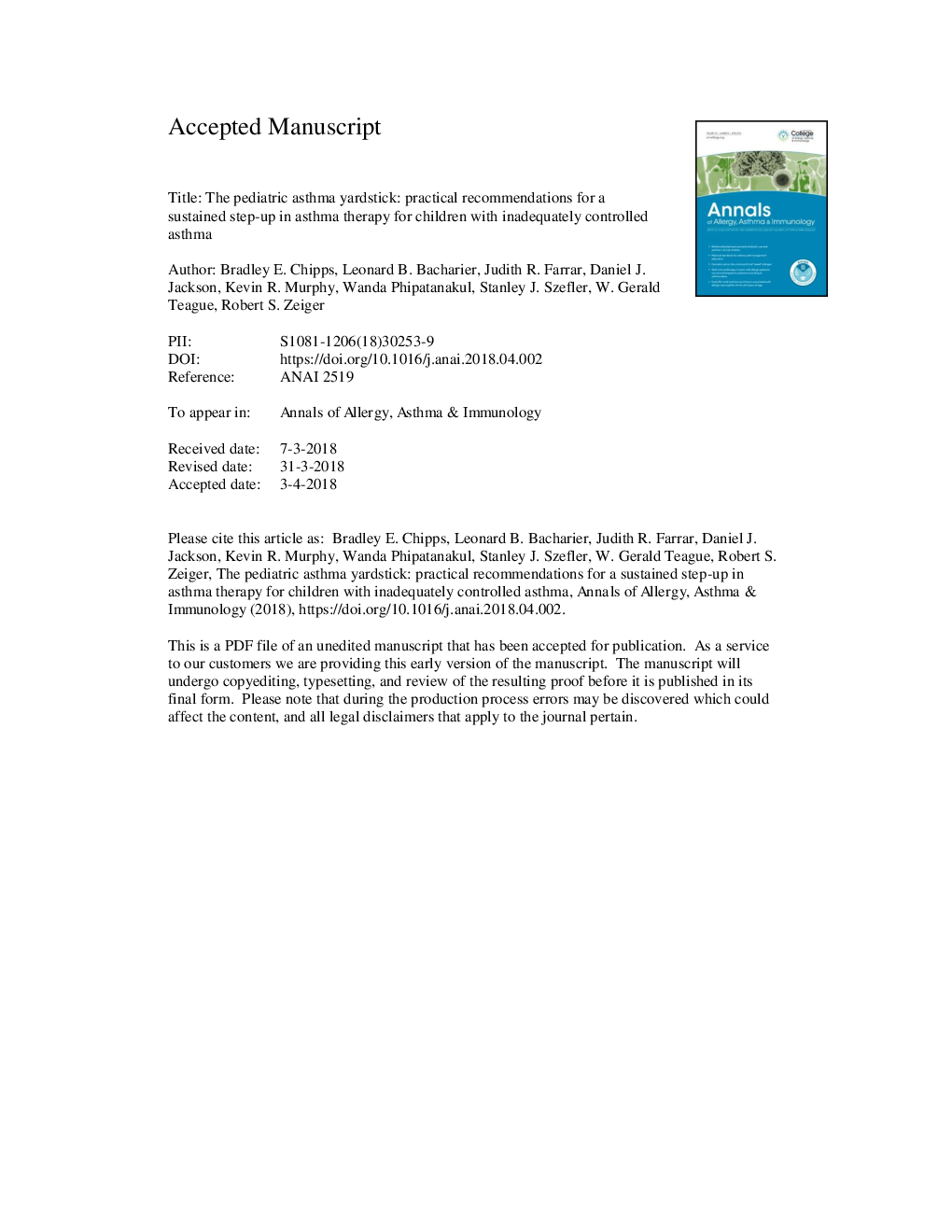ترجمه فارسی عنوان مقاله
معیار آسم کودکان: توصیه های عملی برای افزایش پایدار در درمان آسم برای کودکان مبتلا به آسم ناکافی
عنوان انگلیسی
The pediatric asthma yardstick: practical recommendations for a sustained step-up in asthma therapy for children with inadequately controlled asthma
| کد مقاله | سال انتشار | تعداد صفحات مقاله انگلیسی |
|---|---|---|
| 128999 | 2018 | 149 صفحه PDF |
منبع

Publisher : Elsevier - Science Direct (الزویر - ساینس دایرکت)
Journal : Annals of Allergy, Asthma & Immunology, Available online 10 April 2018

